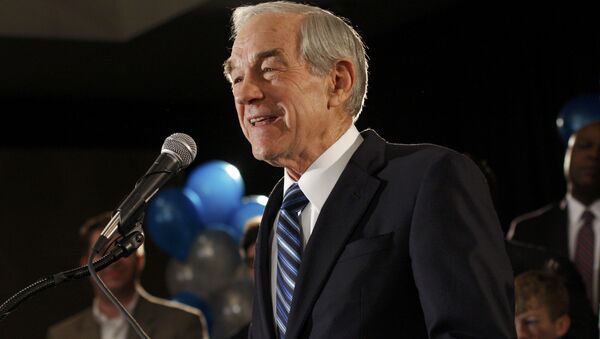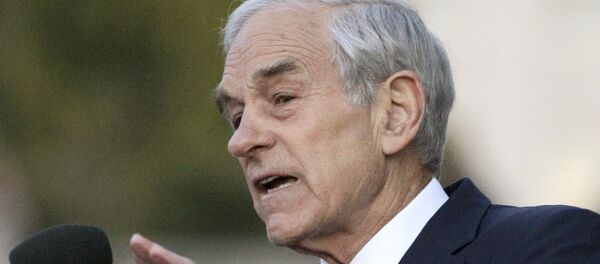"I look at the markets as being unstable, which means some days they go up a lot and some days they go down rapidly, but they don't advance very far when you look at real growth," Paul said on CNBC's 'Futures Now' on Thursday.
"The [Federal Reserve] won't allow this market to drop. This is why I've always leaned toward the assumption that the Fed is never going to raise interest rates deliberately. I think the market will raise interest rates."
The Fed released a statement Wednesday indicating that it will hold off on raising interest rates for now, which led to a surge in the stock market on Thursday. The Nasdaq topped its intraday high from March 2000, while the S&P 500 closed less than 1% off its all-time high.
"I am utterly amazed at how the Federal Reserve can play havoc with the market," said Paul, who has long been an outspoken critic of the Fed, calling for an audit of the financial institution.
The former Presidential candidate said it is not a question of if the crash will occur, but when this "day of reckoning" will arrive.
"You don't know the timeline on this, it could be tomorrow, it could be a month, or it could be a couple years from now, because it all depends on a psychological acceptance of the system."
He continued: I don't think there's any way to know what the time is, but after 35 years of a gigantic bull market in bonds, believe me they cannot reverse history and they cannot print money forever, seed the market forever. Eventually, the markets will rule. And of course that is only a question of when this will happen.
Paul blamed "the fallacy of economic planning" for creating the "horrendous bubble" in the bond market.
"You cannot have it, it's artificial, it has nothing to do with freedom and free markets and capitalism and sound money, but it's all artificial, it's all political and that is why we are so vulnerable," he said.
When that bubble pops, he said, it will spark "stock market chaos."
"So we're all on the verge ‒ the country, the world is on the verge of looking more like Detroit and Greece than anything else. But [in] time that will happen ‒ it’s probably not going to happen tomorrow or next month, but it will happen because this is unsustainable."




